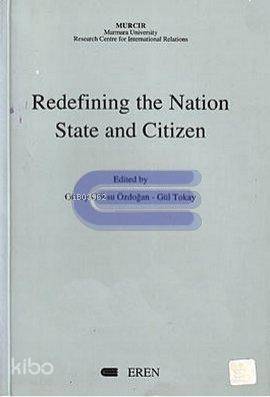9789756322758
444296

https://www.sehadetkitap.com/urun/redefing-the-nation-state-and-citizion
Redefing The Nation State And Citizion
100.00
Over the last decades of the century fundamental changes have taken place in the global order. As is evident ethnopolitics has generally gained an unanticipated dynamism almost in all regions, emerging in the long established and relatively young nation-states of the world at the same time. The specific impact of post-cold war and post-communist developments have further increased the significance of this process. Increasing trends of regional integration, global and multicultural intercourse, in parallel, have also onset such new sets of relations that the very political, economic and cultural foundations of the nation-state are being seriously challenged. Consequently, there has emerged both a theoretical and a practical necessity to reconsider historical legacies and conceptual constructs surrounding the phenomenon of the nation-state at large.
Today, Turkey stands at the cross-roads of many regions undergoing such transformation, herself being exposed to similar pressures. It was the uncertainties of the 'new order' and the challenges it brought against the existing systems both in and outside of Turkey that gave us the initial impetus to contribute to the global discussions concerning ethnicity, nation and statehood, citizenship and identity.
The collection of articles in this volume critically deal with the premises and construction of the nation-state, its ideology and identity, and the status of citizenship within, thematically proceeding from historical evaluations to analysis of contemporary issues. Overall, the question of future of the nation-state and citizenship rights emerges as one of the most salient issues of global politics and democracy of our time. The prevalent theoretical tension between communitarian/organic and individual/liberal rights; the pressing reality of regional/global pressures; the ensuing plurality of identities, they all converge on the question of 'whither the nation-state? '.
Over the last decades of the century fundamental changes have taken place in the global order. As is evident ethnopolitics has generally gained an unanticipated dynamism almost in all regions, emerging in the long established and relatively young nation-states of the world at the same time. The specific impact of post-cold war and post-communist developments have further increased the significance of this process. Increasing trends of regional integration, global and multicultural intercourse, in parallel, have also onset such new sets of relations that the very political, economic and cultural foundations of the nation-state are being seriously challenged. Consequently, there has emerged both a theoretical and a practical necessity to reconsider historical legacies and conceptual constructs surrounding the phenomenon of the nation-state at large.
Today, Turkey stands at the cross-roads of many regions undergoing such transformation, herself being exposed to similar pressures. It was the uncertainties of the 'new order' and the challenges it brought against the existing systems both in and outside of Turkey that gave us the initial impetus to contribute to the global discussions concerning ethnicity, nation and statehood, citizenship and identity.
The collection of articles in this volume critically deal with the premises and construction of the nation-state, its ideology and identity, and the status of citizenship within, thematically proceeding from historical evaluations to analysis of contemporary issues. Overall, the question of future of the nation-state and citizenship rights emerges as one of the most salient issues of global politics and democracy of our time. The prevalent theoretical tension between communitarian/organic and individual/liberal rights; the pressing reality of regional/global pressures; the ensuing plurality of identities, they all converge on the question of 'whither the nation-state? '.
Yorum yaz
Bu kitabı henüz kimse eleştirmemiş.














